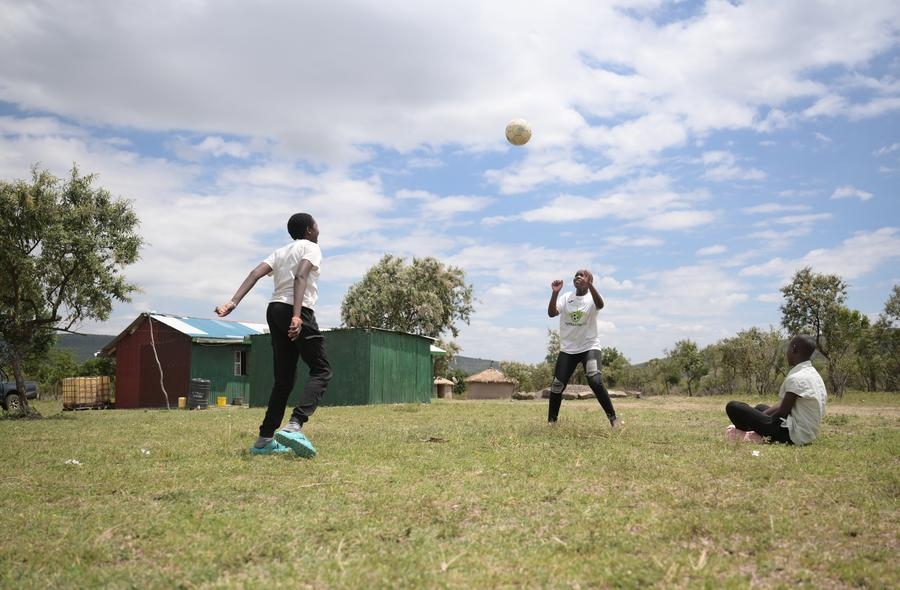US Secretary of State Antony Blinken travelled to Port-au-Prince Thursday to meet Kenyan police, who are in Haiti to help fight gangs terrorising the Caribbean nation.
He will also meet with Prime Minister Garry Conille and the head of the Transitional Presidential Council, Edgard Leblanc.
A large part of Blinken’s focus is expected to be on security and the multinational mission, which comes up for renewal before the UN Security Council on September 30, officials said.
The mission was first authorised by the Security Council in October 2023 for a year.
US State Department spokesperson Mathew Miller said Blinken will travel to Haiti and Dominican Republic on Thursday and Friday.
“He will also meet with leadership of the Multinational Security Support mission, emphasising US support to reestablish security in Haiti, while also underscoring the significance of promoting respect for human rights,” he said.
He will also discuss forthcoming steps in Haiti’s democratic transition and US support to the Haitian people through humanitarian assistance and Haitian-led stabilisation efforts.
The high-security visit comes two months after Kenyan police officers arrived in the Western Hemisphere's poorest country to launch a long-awaited mission.
A senior State Department official told reporters on Wednesday that the United States is prioritising efforts with its international partners to set up a structure that ensures "a reliable source of financing and staffing" for a security mission in Haiti.
US President Joe Biden's administration is reportedly considering the possibility of transitioning a largely US-funded multinational security force into a traditional United Nations peacekeeping operation.
"A formal PKO (peacekeeping operation) is one of the ways we could accomplish that, but we're looking at multiple ways to do that," said Brian Nichols, assistant secretary of state for Western Hemisphere affairs.
With about a month left in the mandate of the UN-ratified, Kenya-led Multinational Security Support Mission (MSS) in Haiti, progress has been limited, and many pledges remain unfulfilled.
The first contingent of 200 Kenyans arrived in Port-au-Prince on June 25 and a second group on July 16.
Despite their presence, several neighbourhoods on the outskirts of the capital have since fallen under gang control and Haitians, both in the population and in the police, have quietly expressed disappointment with the mission.
The Biden administration is exploring the possibility of transitioning to a traditional United Nations peacekeeping operation.
Gang-related violence and drug trafficking have fuelled political instability and insecurity in Haiti, leading to an unbearable living situation for the Haitian people.
According to the Miami Herald, the State Department has notified US lawmakers of its intentions to transform the Multinational Security Support to a peacekeeping operation in the face of funding and equipment shortfalls.
The switch is an acknowledgment of the administration’s struggle to attract voluntary contributions for the mission, which the administration says costs roughly $200 million every six months to operate.
It also reflects a failure to quickly restore order in Haiti despite public pronouncements that there has been progress since the Kenyans’ arrival.
Kenyan police are in Haiti to help the Caribbean nation stabilise from gang violence.
A traditional UN peacekeeping operation would end the mission’s problems with funding because it would be paid for through member nations’ traditionally assessed contributions.
It would also provide more equipment like helicopters, which the current Kenya-led mission lacks, and possibly a hospital capable of performing surgeries.
Also, the UN would be able to mobilise military forces, rather than just cops, from other nations in a way that the US has been unable to do.
A peacekeeping mission would need the approval of the UN Security Council, and there are questions about whether its members, especially China and Russia, would support it.
Robert Rae, Canada’s ambassador to the UN, who visited Haiti last week, said there needs to be a discussion about how to beef up the security mission.
“The obvious answer to that is through a peacekeeping mission. But we need to understand the political challenges,” he said in an interview after his visit.
“Only the Security Council can approve this peacekeeping mission. And a peacekeeping mission has to be funded, but it also has to be approved by the [Permanent 5 members] and that includes China and Russia.
The violence is also disrupting access to healthcare and has led to more than 2,500 deaths or injuries in the first three months of the year, according to the U.N.
Canada recently sent its contribution of $59 million Canadian dollars to a U.N.-controlled Trust Fund set up for the Kenya mission’s operations, while the U.S. remains the largest financial contributor.
The Biden administration has provided more than $300 million that has, among other things, paid for the construction of a base near Port-au-Prince’s international airport and dozens of armored vehicles for the foreign police officers.
There are currently 400 Kenyans police officers in Haiti tasked with helping the Haitian police take on gangs that have continued to force people out of their homes.












